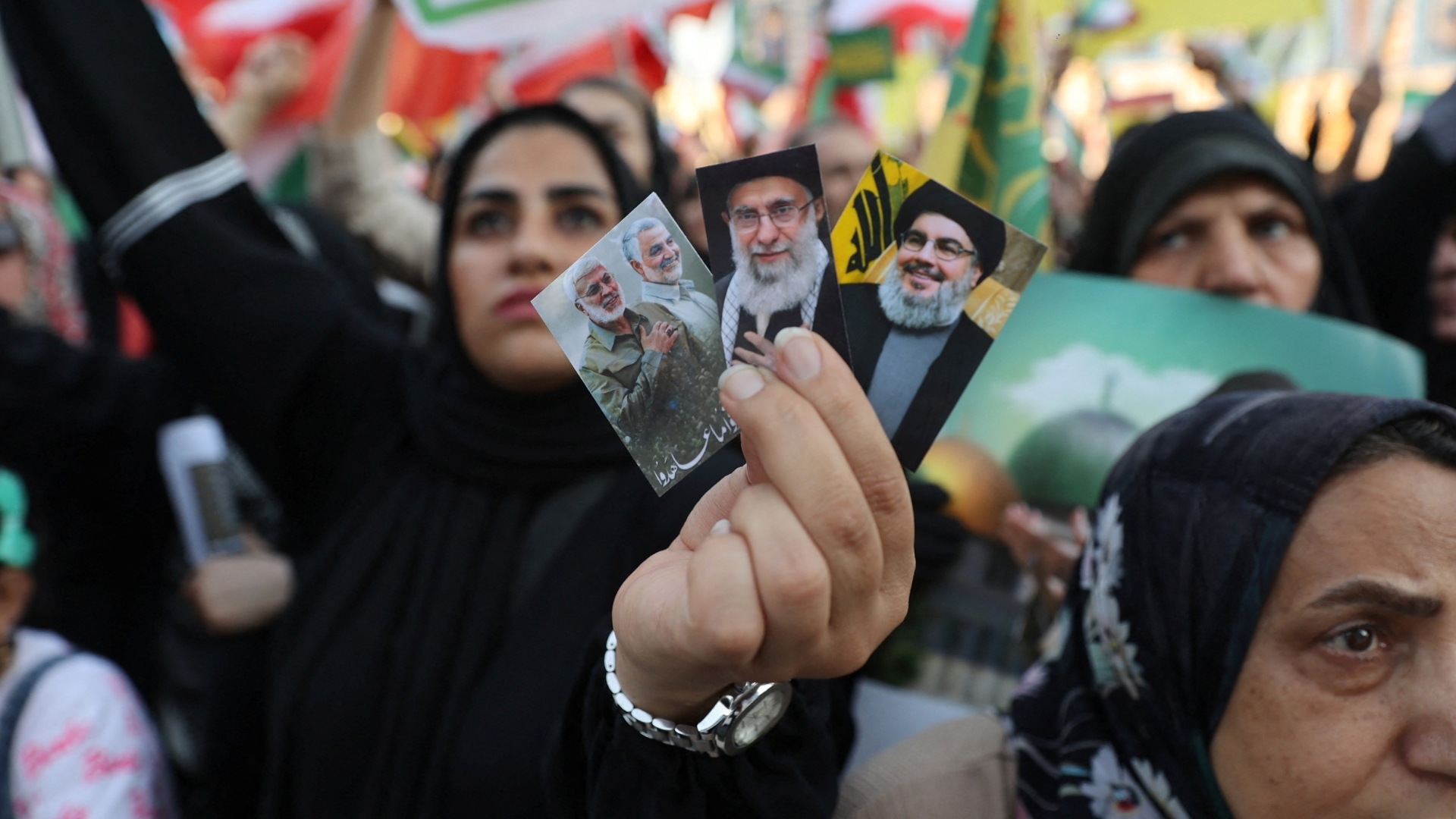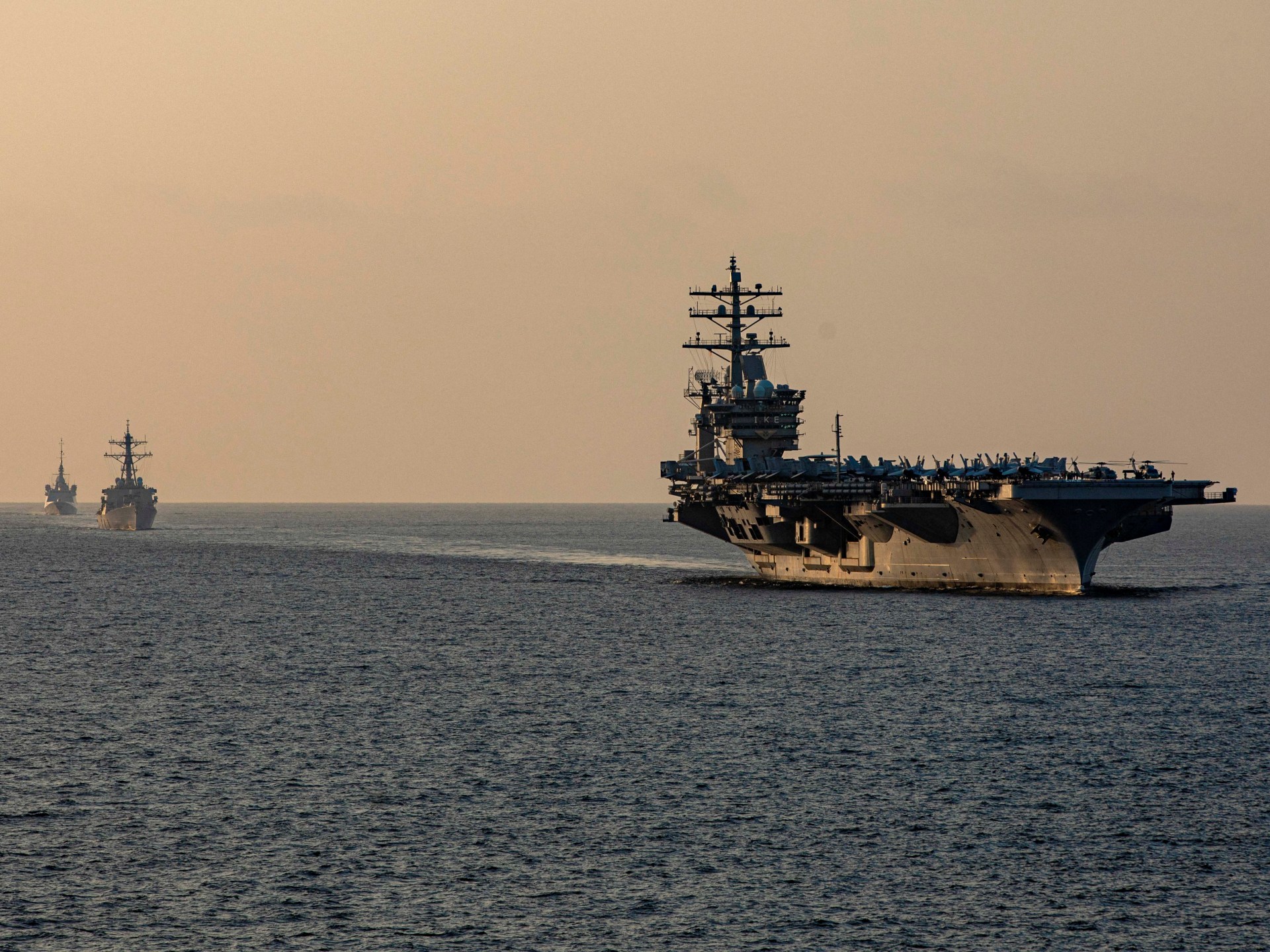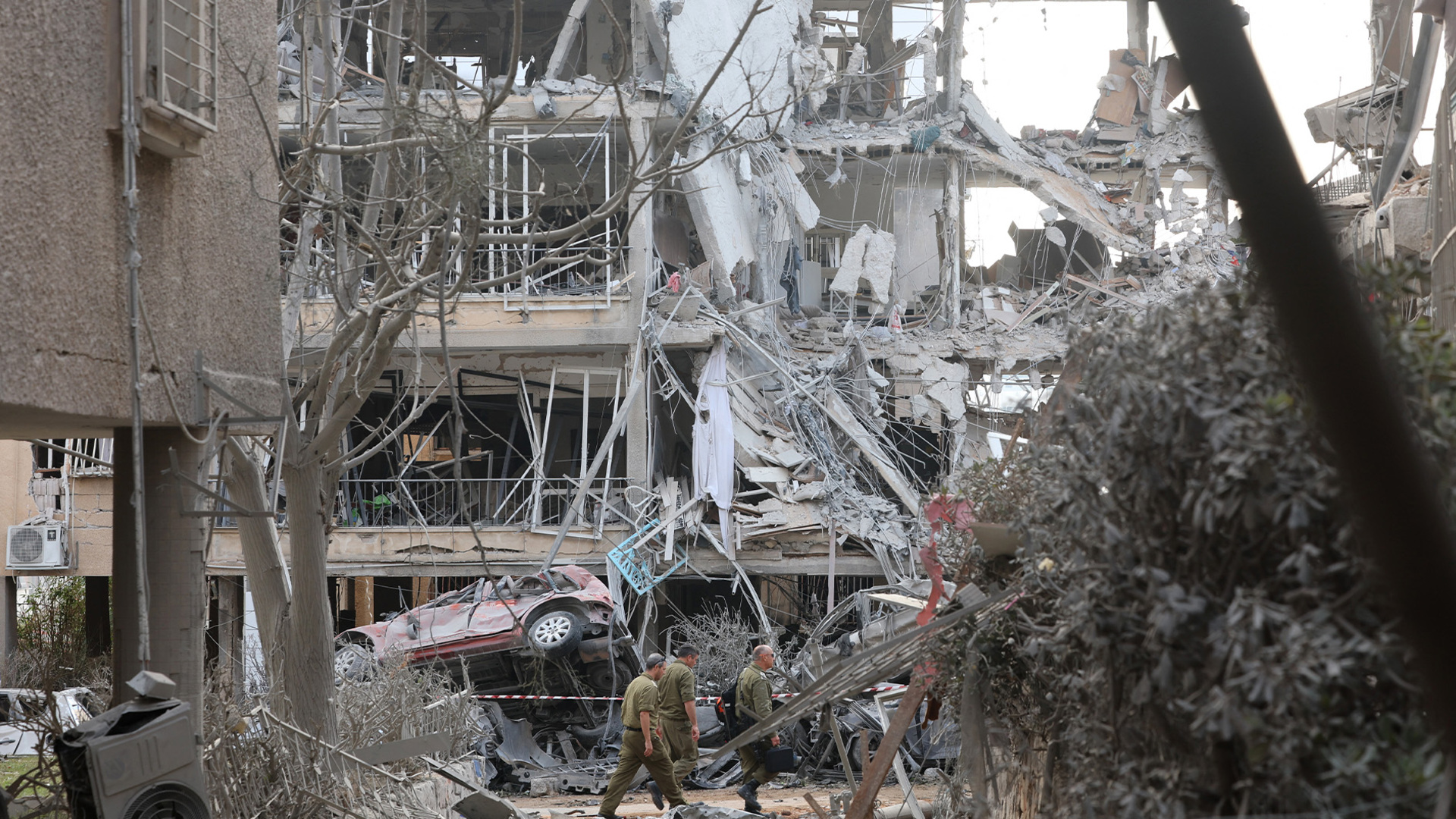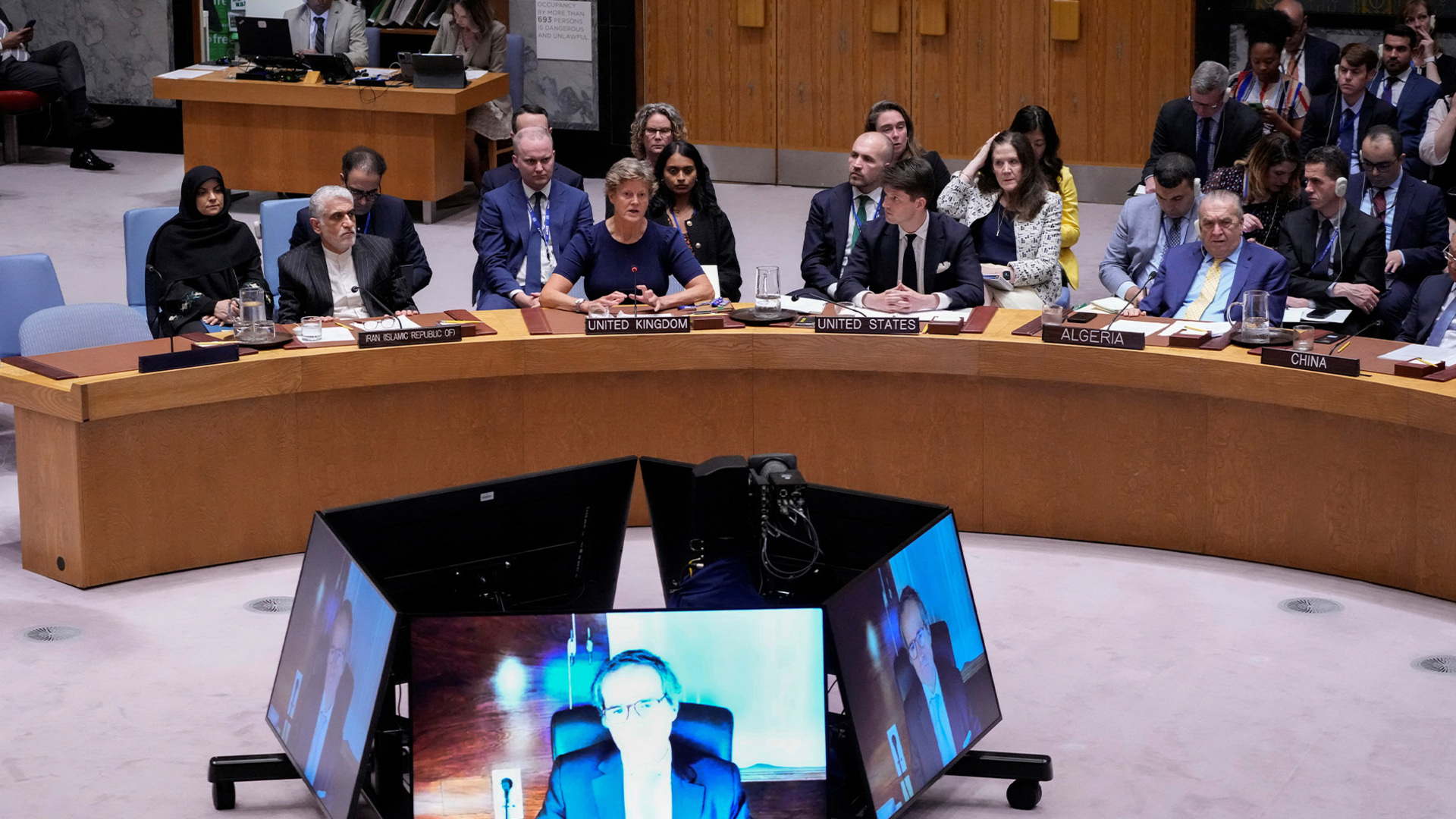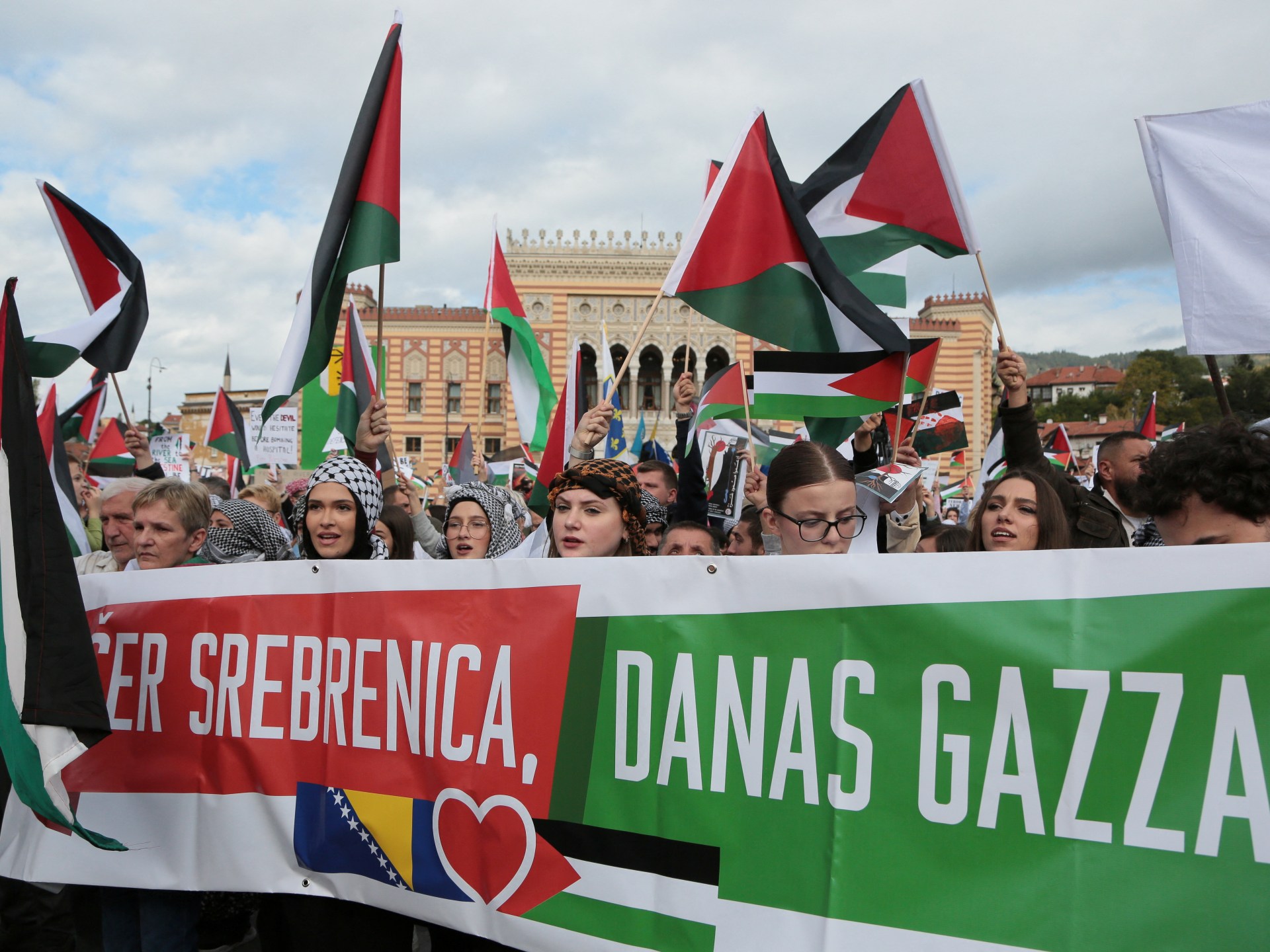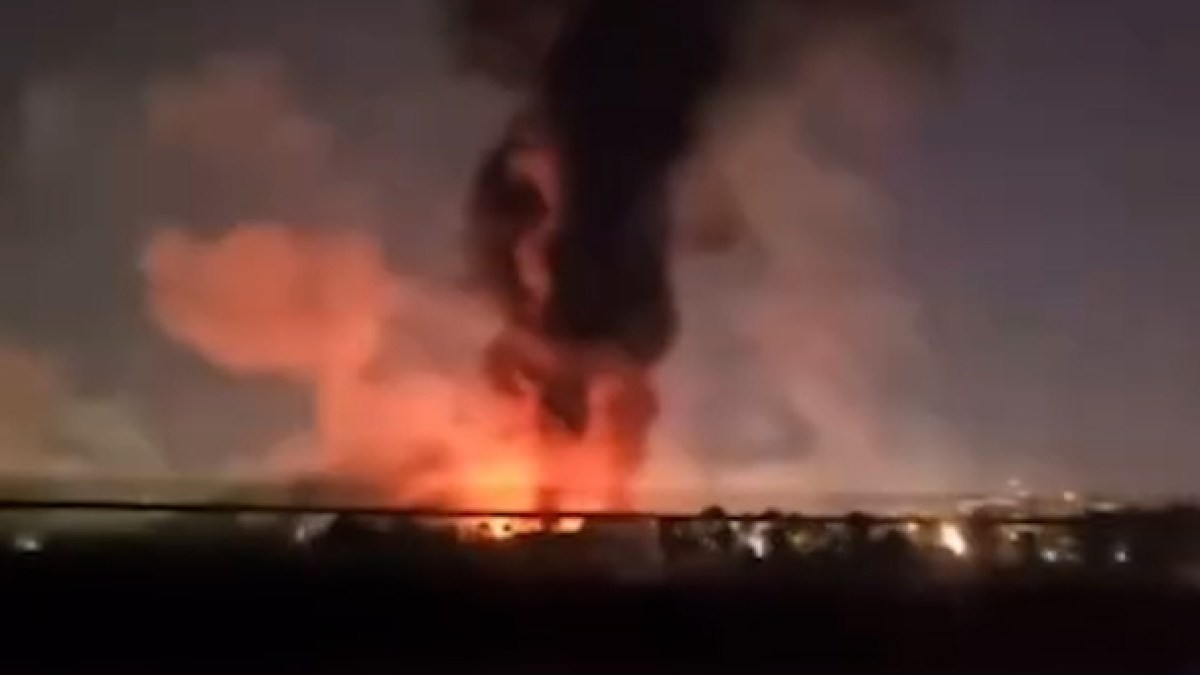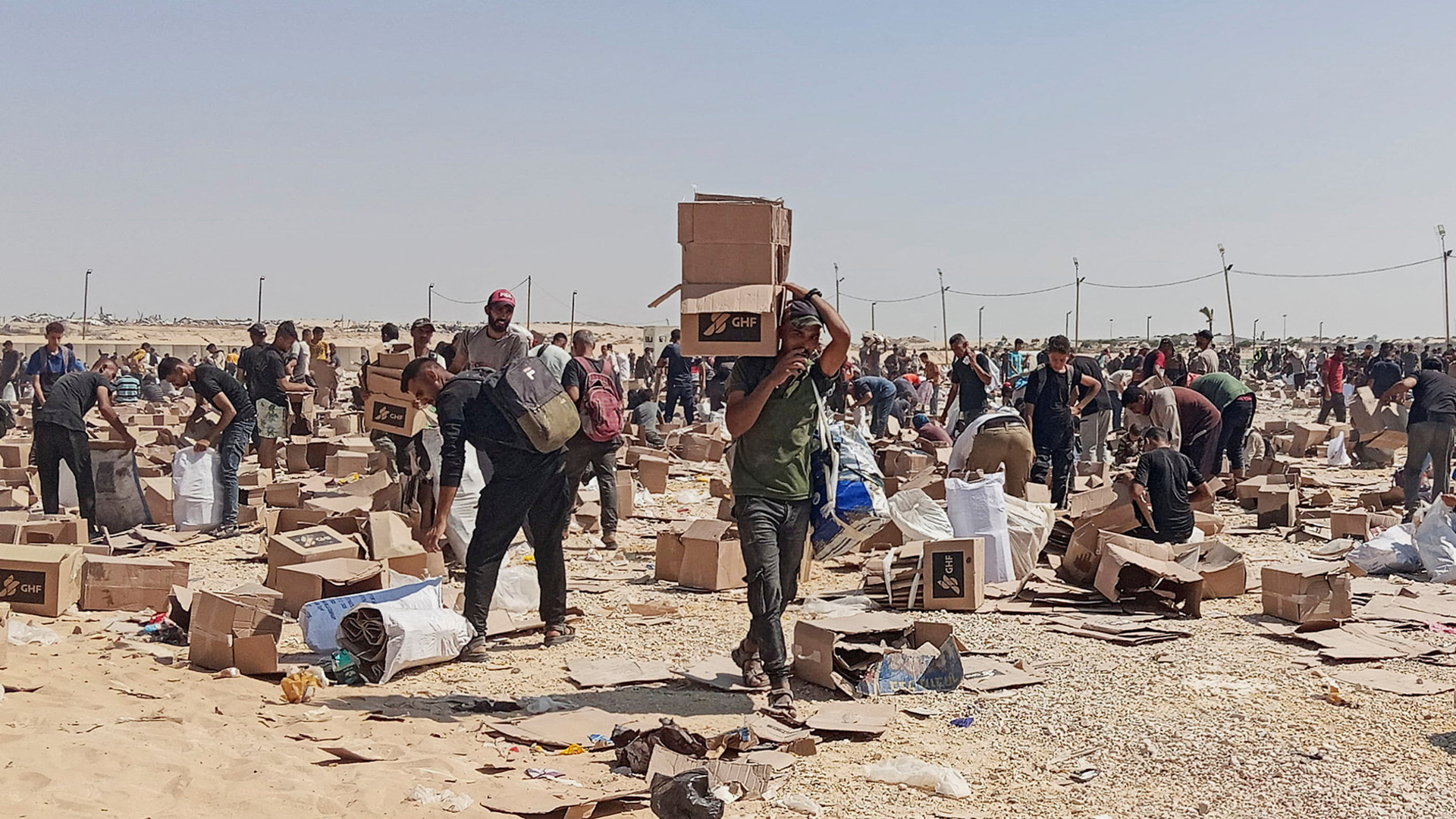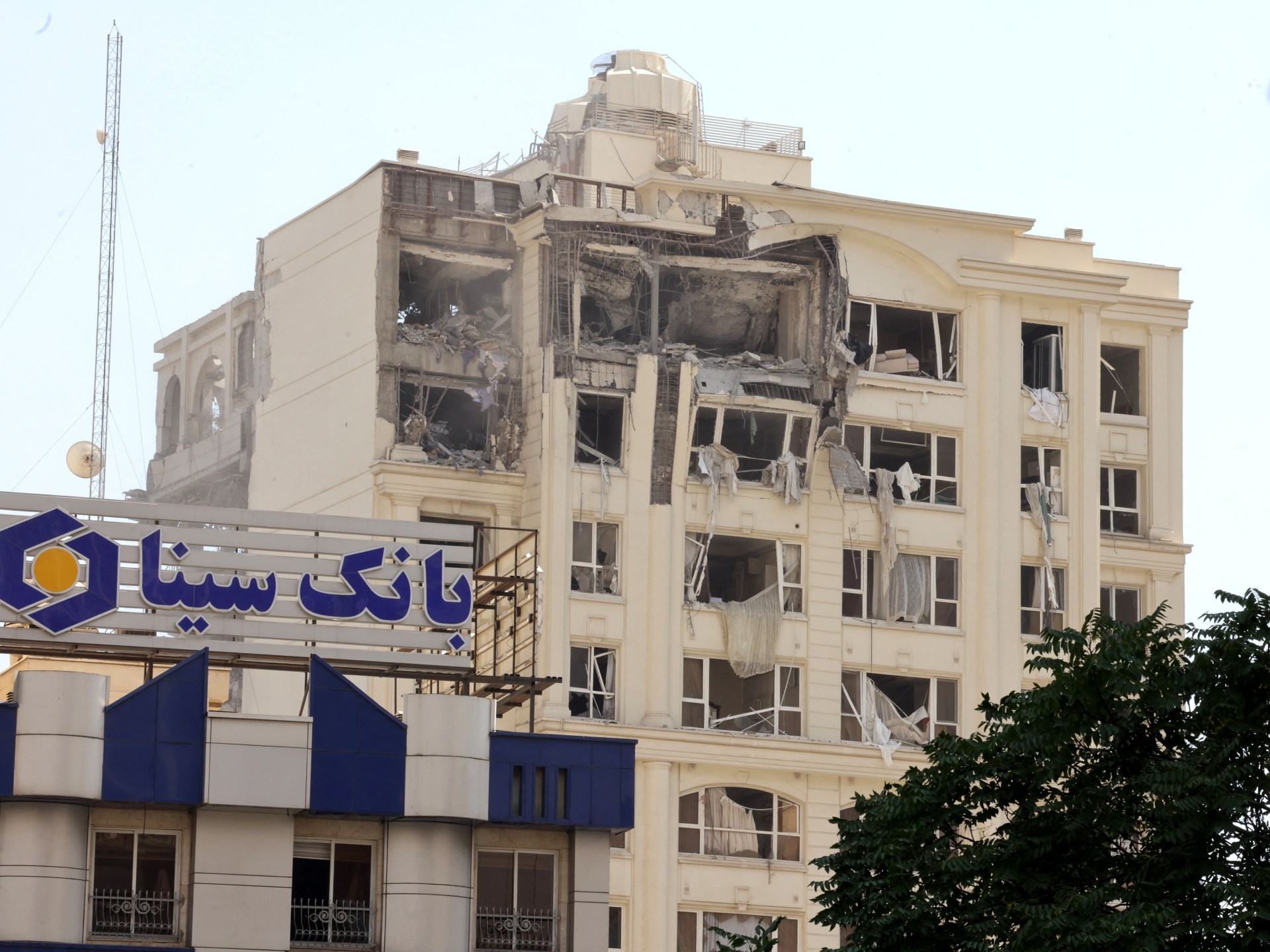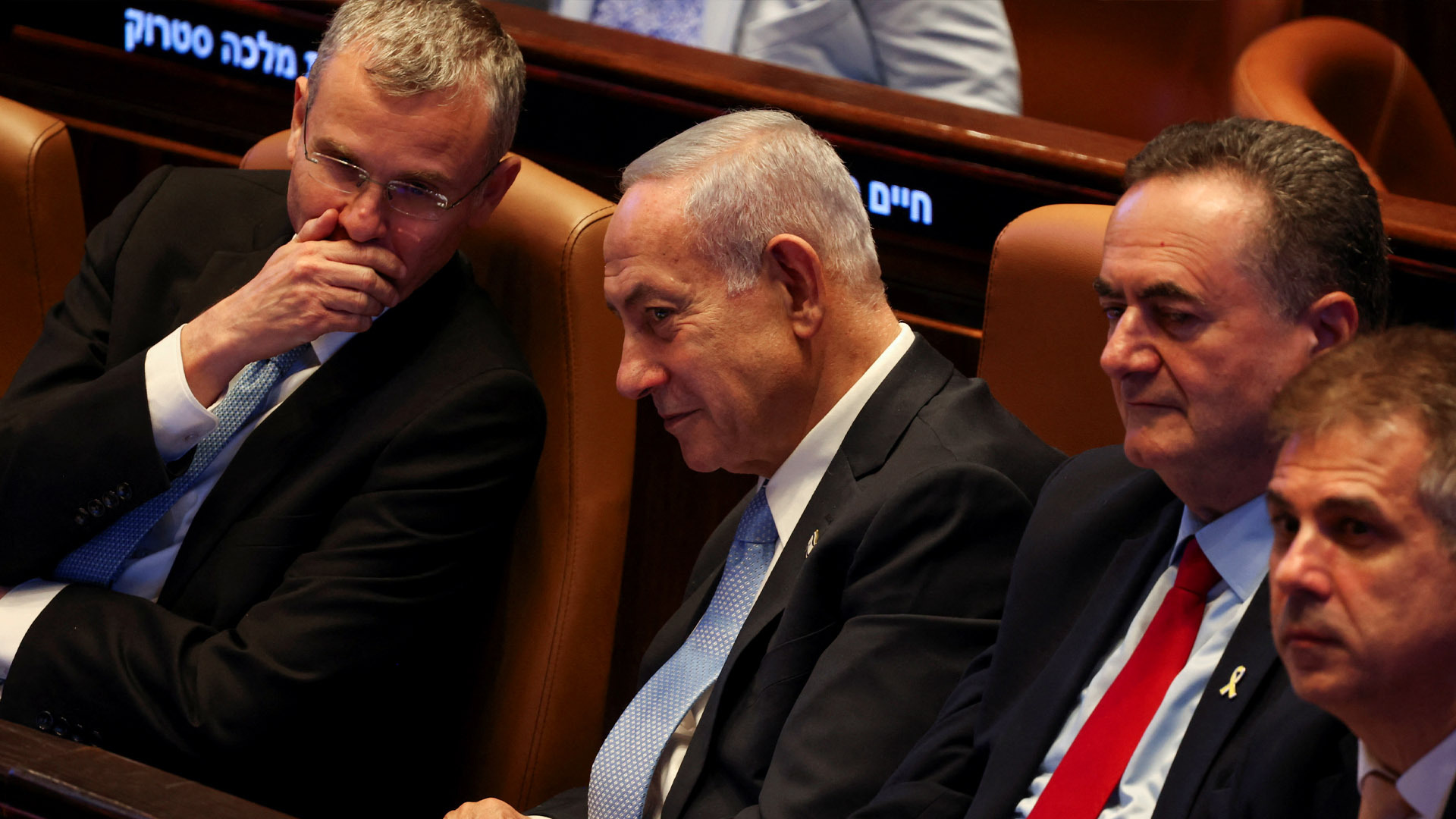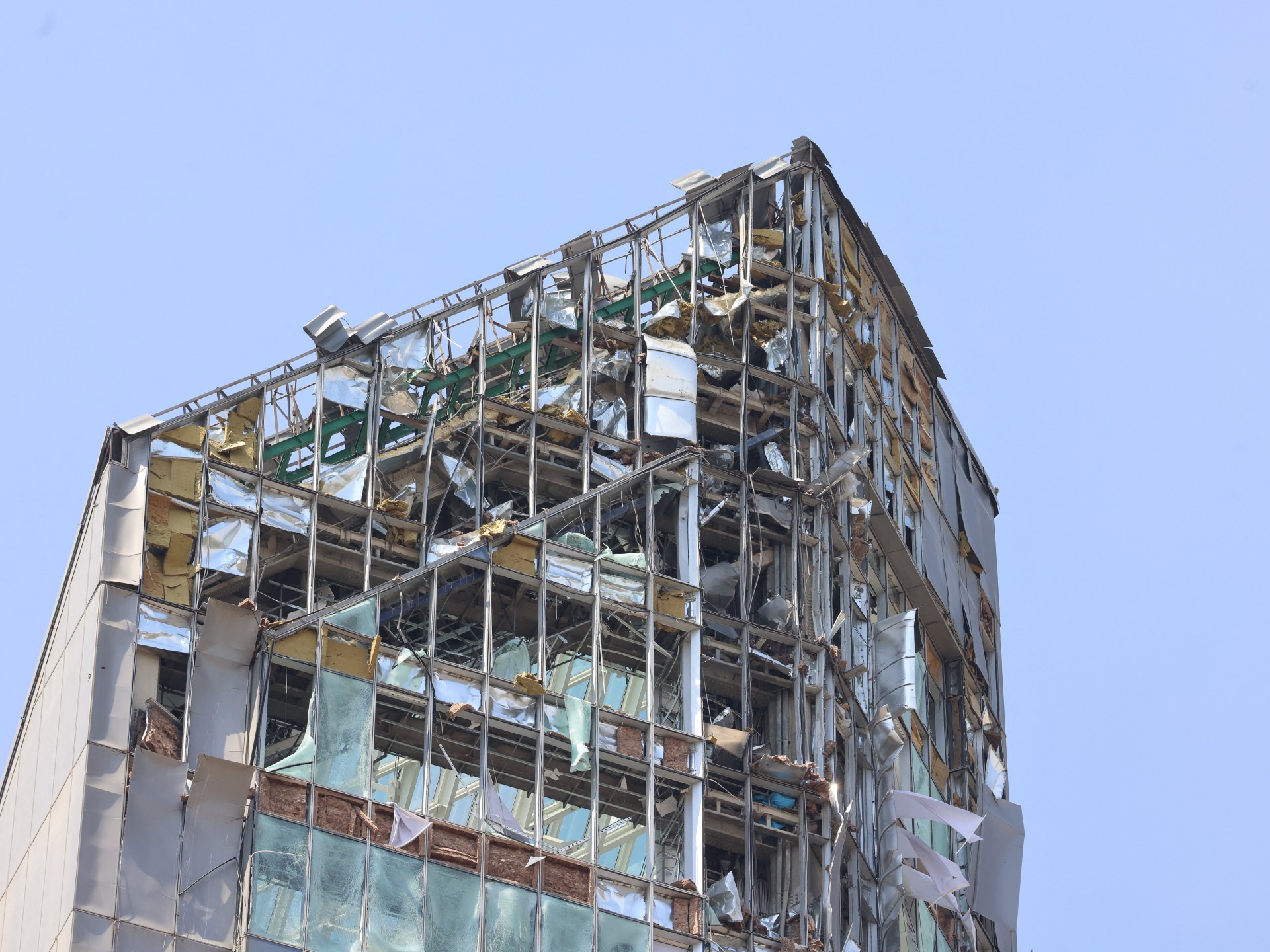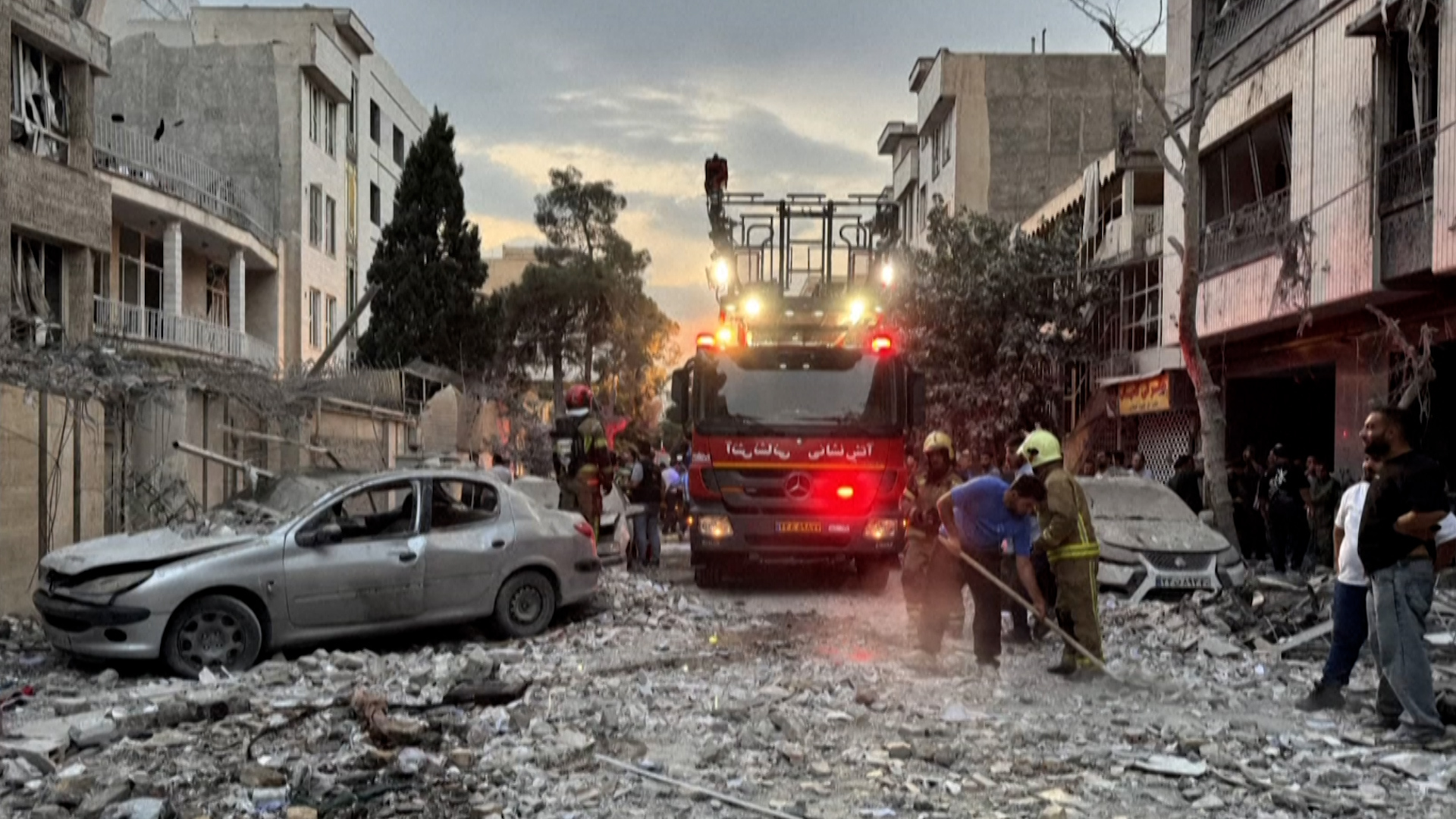Which Iranian oil and gas facilities has Israel hit? Why do they matter? | Oil and Gas News
Israel has struck some of Iran’s most vital oil and gas facilities, the first such attacks despite decades of rivalry between the Middle Eastern nations, raising fears of a widening conflict and threatening turmoil for the markets.
Late on Saturday, Iran’s Ministry of Petroleum said Israel struck a key fuel depot, while another oil refinery in the capital city of Tehran was also in flames, as emergency crews scrambled to douse the fires at separate sites.
Iran has also partially suspended production at the world’s biggest gasfield, the South Pars, which it shares with neighbour Qatar, after an Israeli strike caused a fire there on Saturday.
The latest round of exchange of projectiles began on Friday after Israel launched attacks on Iran’s military and nuclear sites and assassinated several top military officials and nuclear scientists. Tehran retaliated by firing ballistic missiles and drones at multiple cities in Israel amid global calls for de-escalation.
According to Iranian state media, Israeli attacks have killed at least 80 people, including 20 children, and wounded 800 others over the past two days. Israeli authorities said that 10 people had been killed in Iranian strikes, with over 180 injured.
Israel’s unprecedented and sudden attacks on Iran’s energy facilities are poised to disrupt the oil supplies from the Middle East, and could shake up global fuel prices, even as both countries threaten each other with even more intense attacks.
So, what are the key energy sites in Iran hit in Israeli attacks? And why do they matter?

Which major facilities were hit in Israeli attacks?
Iran holds the world’s second-largest proven natural gas reserves and the third-largest crude oil reserves, according to the United States government’s Energy Information Administration (EIA), and its energy infrastructure has long been a potential target for Israel.
Before the current spiral in their conflict, Israel had largely avoided targeting Iranian energy facilities, amid pressure from its allies, including the US, over the risks to global oil and gas prices from any such attack.
That has now changed.
On Friday, Israel’s Defence Minister Israel Katz warned that if Iran retaliated to its attacks, “Tehran will burn”.
Late on Saturday, major fires broke out at two opposing ends of the Iranian capital — the Shahran fuel and gas depot, northwest of central Tehran, and one of Iran’s biggest oil refineries in Shahr Rey, to the city’s south.
While Iran’s Student News Network subsequently denied that the Shahr Rey refinery had been struck by Israel, and claimed it was still operating, it conceded that a fuel tank outside the refinery had caught fire. It did not explain what sparked the fire.
But Iran’s Petroleum Ministry confirmed that Israel had struck the Shahran depot, where firefighters are still trying to bring flames under control.
The Israeli aerial attacks also targeted the South Pars field, offshore Iran’s southern Bushehr province. The world’s largest gasfield is the source of two-thirds of Iran’s gas production, which is consumed nationally. Iran shares the South Pars with its neighbour Qatar, where it is called the North Field.
The strikes triggered significant damage and fire at the Phase 14 natural gas processing facility and halted an offshore production platform that generates 12 million cubic metres per day, reported the semiofficial Tasnim news agency.
In a separate Israeli attack, fire reportedly broke out at the Fajr Jam gas plant, one of Iran’s largest processing facilities, also in the Bushehr province, which processes fuel from South Pars. The Iranian Petroleum Ministry confirmed that the facility was hit.
Why are these sites important?
The Shahran oil depot is one of Tehran’s largest fuel storage and distribution hubs. It has nearly 260 million litres of storage capacity across 11 tanks. It is a vital node in the capital’s urban fuel grid, distributing petrol, diesel, and aviation fuel to several terminals across northern Tehran.
The Tehran Refinery, located just south of Tehran, in the Shahr-e Rey district, operated by the state-owned Tehran Oil Refining Company, is one of the country’s oldest refineries, with a refining capacity of nearly 225,000 barrels per day. Experts warn that any disruption to this site — whatever the cause of the fire — could strain fuel logistics in Iran’s most populous and economically significant region.
Down south, the offshore South Pars gasfield in the Gulf contains an estimated 1,260 trillion cubic feet of recoverable gas, accounting for nearly 20 percent of known global reserves.
Meanwhile, the hit on the Fajr-e Jam Gas Refinery, in Bushehr province, threatens to disrupt Iran’s domestic electricity and fuel supplies, particularly for the southern and central provinces, which are already under huge stress. In Iran, blackouts cost the economy about $250m a day, according to the government’s estimates.
Uncertain global markets
Adding to the uncertainty in global markets, Iran has noted that it is considering closing the Strait of Hormuz amid the intensifying conflict with Israel – a move that would send oil prices soaring.
The Strait of Hormuz, which splits Iran on one side and Oman and the United Arab Emirates on the other, is the only marine entryway into the Gulf, with nearly 20 percent of global oil consumption flowing through it. The EIA describes it as the “world’s most important oil transit chokepoint”.
The Israeli attacks on Friday, which spared Iran’s oil and gas facilities on the first day of the fighting, had already pushed oil prices up 9 percent, before they calmed just a bit. Analysts expect prices to rise sharply when oil markets open again on Monday.
Alan Eyre, a distinguished diplomatic fellow at the Middle East Institute, told Al Jazeera that Israel was trying to push the US into participating in its attacks on Iran. “Ultimately, Israel’s best case scenario is to encourage, if not regime change, then the toppling of this regime,” he said.
“Iran’s options are very limited; they have to respond militarily to save face domestically [but] it is very unlikely that Iran can cause enough damage to Israel internally or put enough pressure to stop bombing,” Eyre said.
“Iran does not have many allies in the international community – and even if it did, Israel has shown that it is spectacularly unwilling to listen to international opinion,” added Eyre.
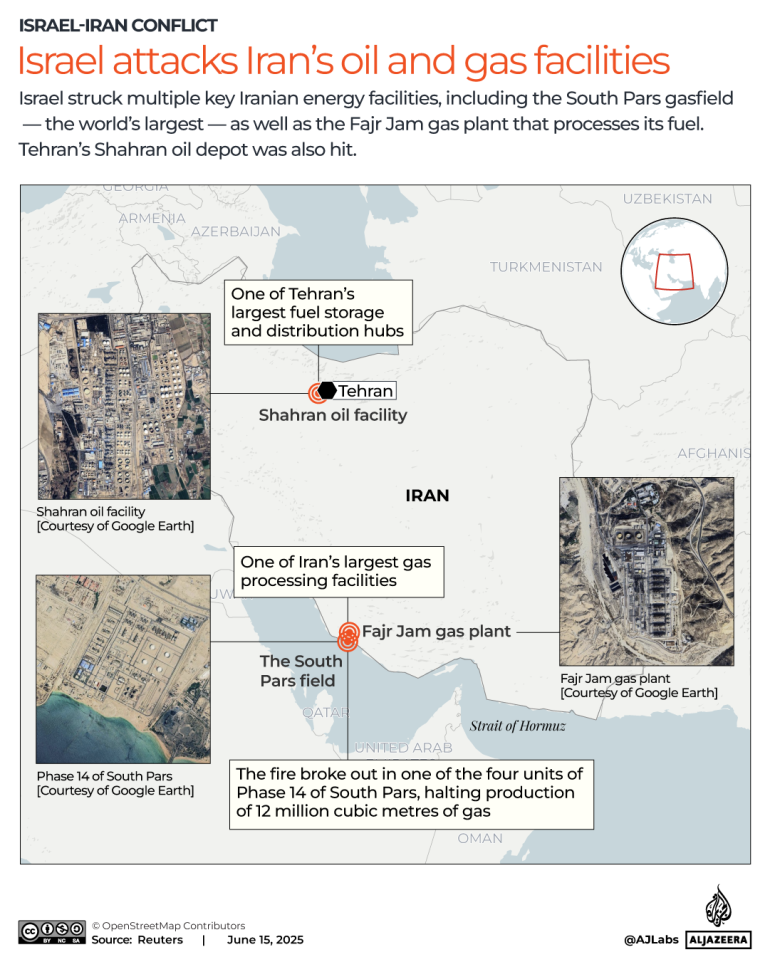

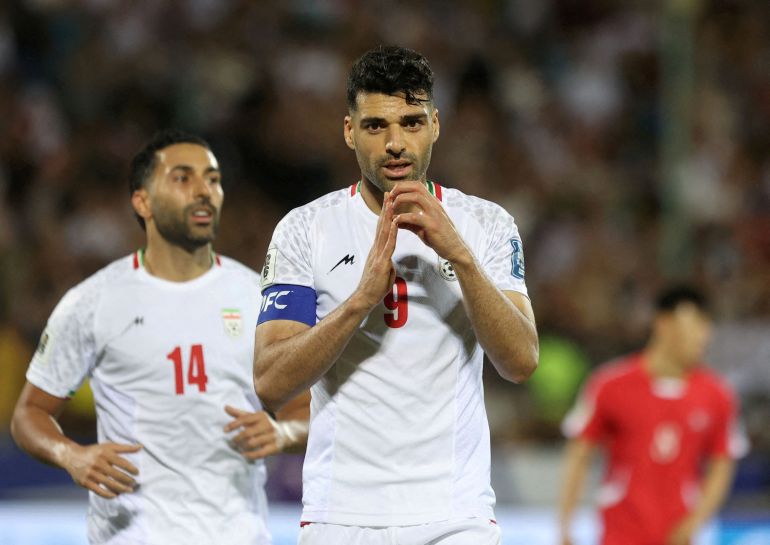
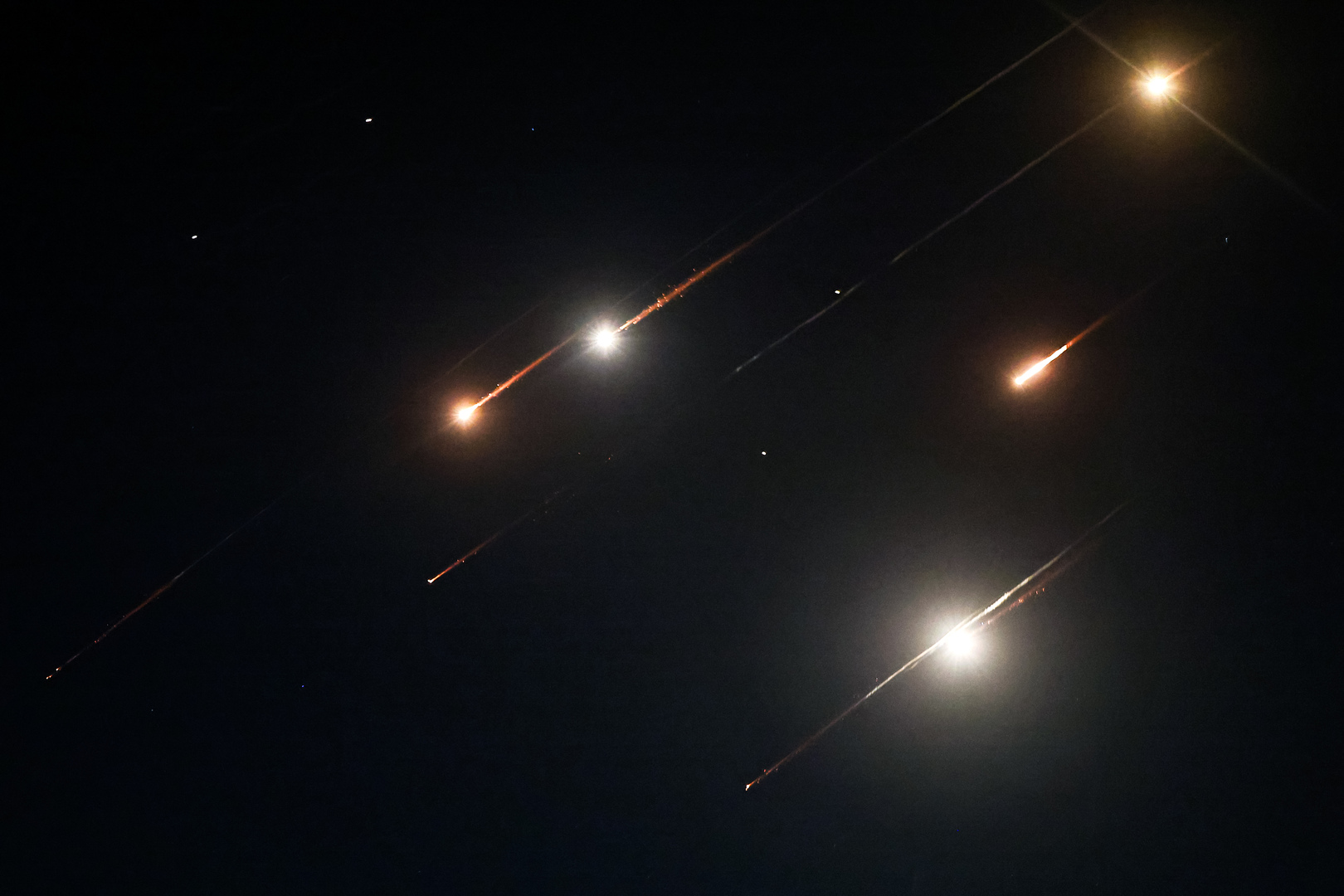
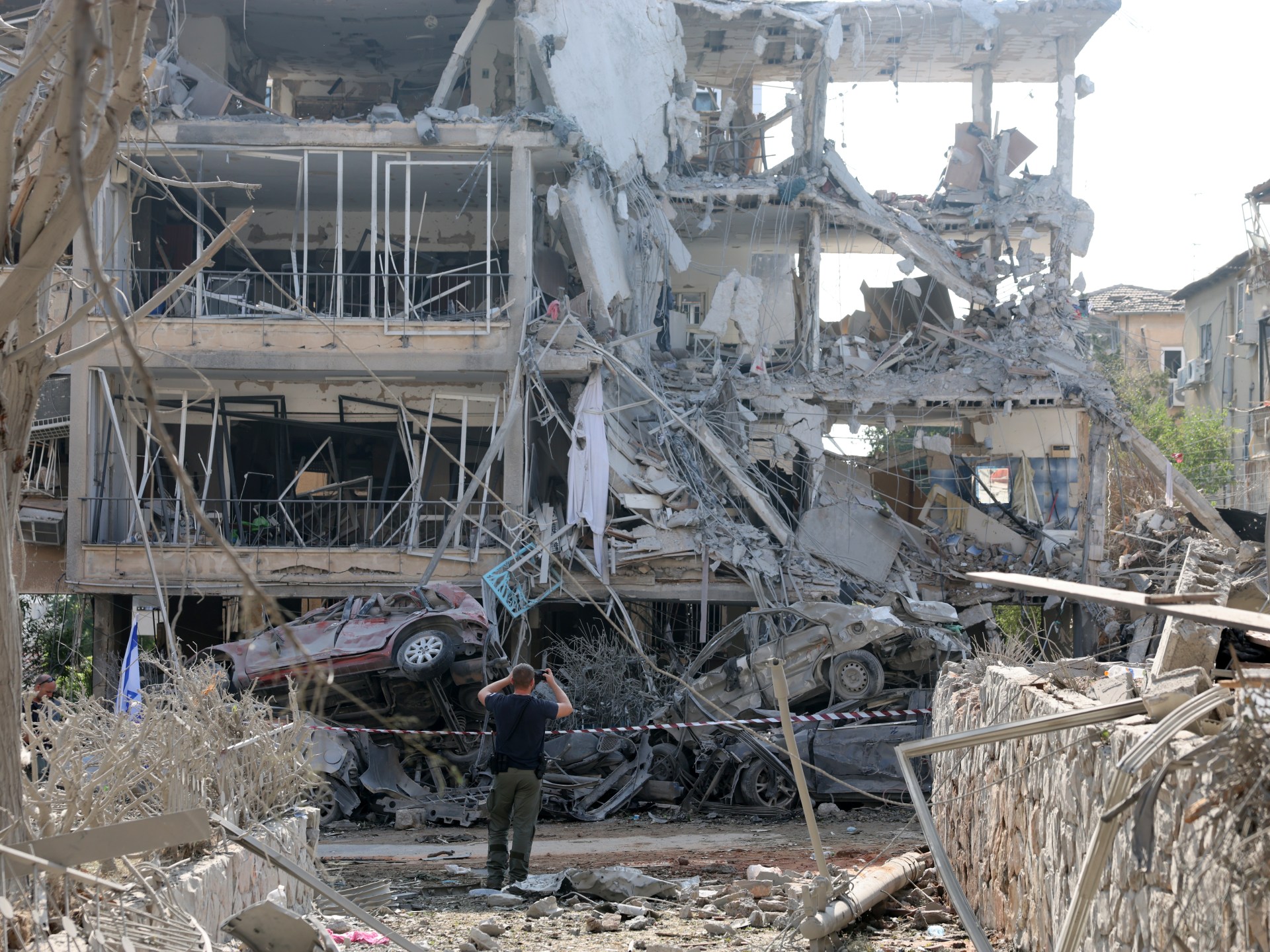
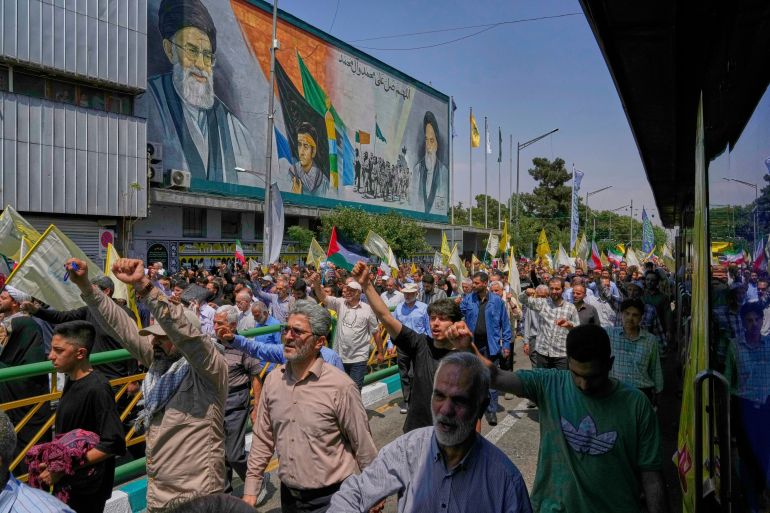


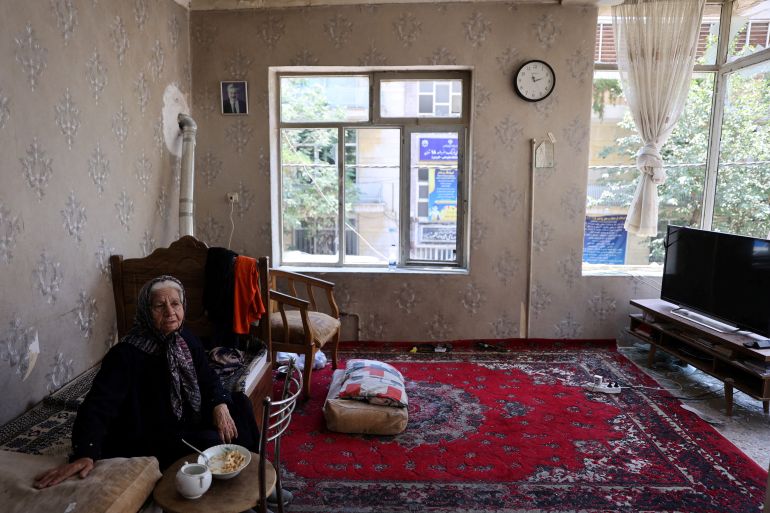


![Israeli search and rescue team conduct operation amid the rubble of destroyed building after the attacks of Iranian army following the launch of large-scale Israeli strikes against Iran in Rishon LeZion, Israel on June 14, 2025. [Mostafa Alkharouf/Anadolu Agency]](https://www.aljazeera.com/wp-content/uploads/2025/06/AA-20250614-38276354-38276353-DESTRUCTION_OF_HOUSES_IN_RISHON_LEZION_AREA_OF_ISRAEL_AFTER_IRANIAN_MISSILE_ATTACKS-1749912512.jpg?w=770&resize=770%2C513&quality=80)
